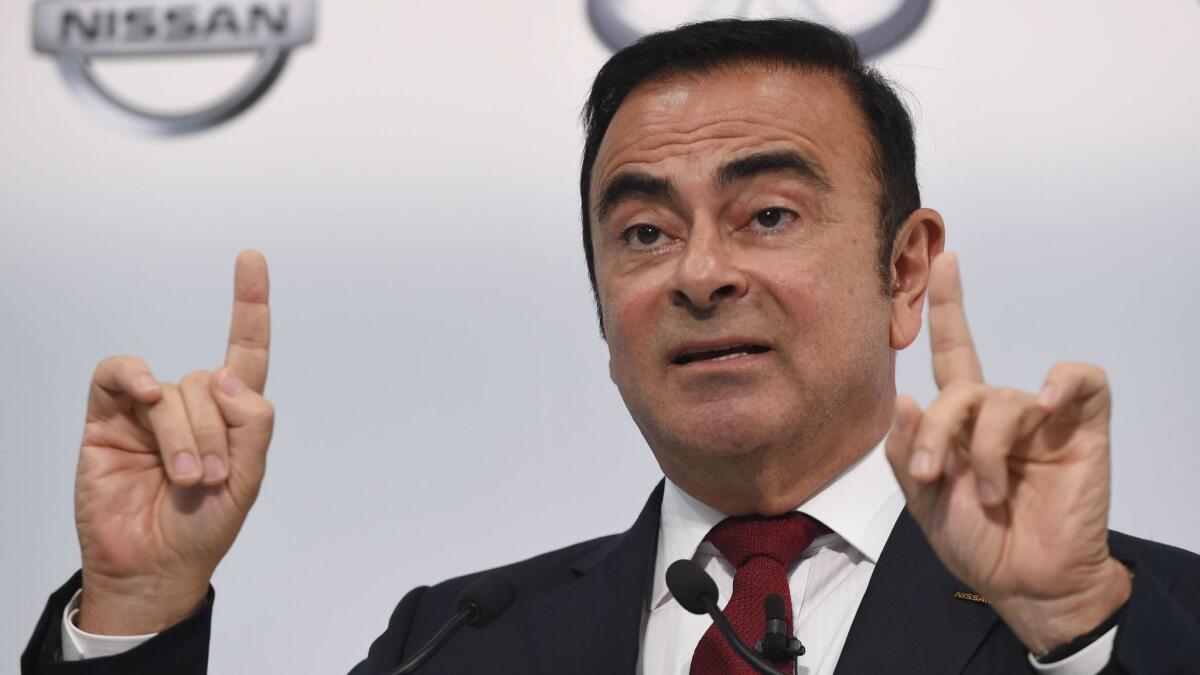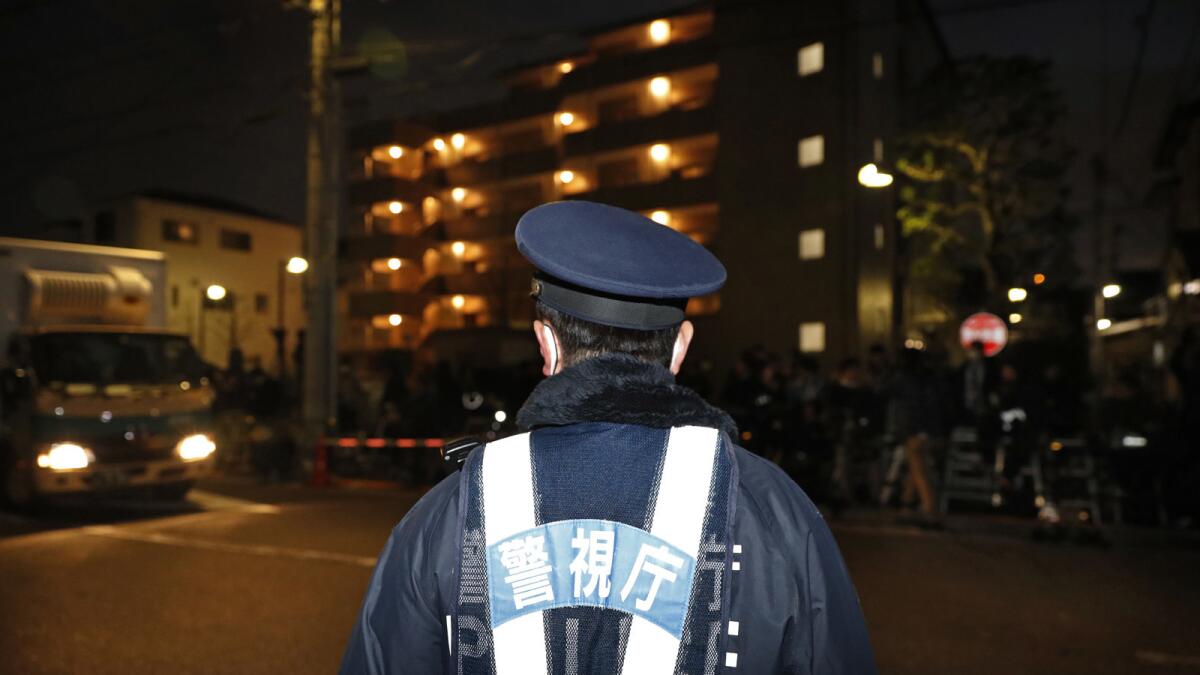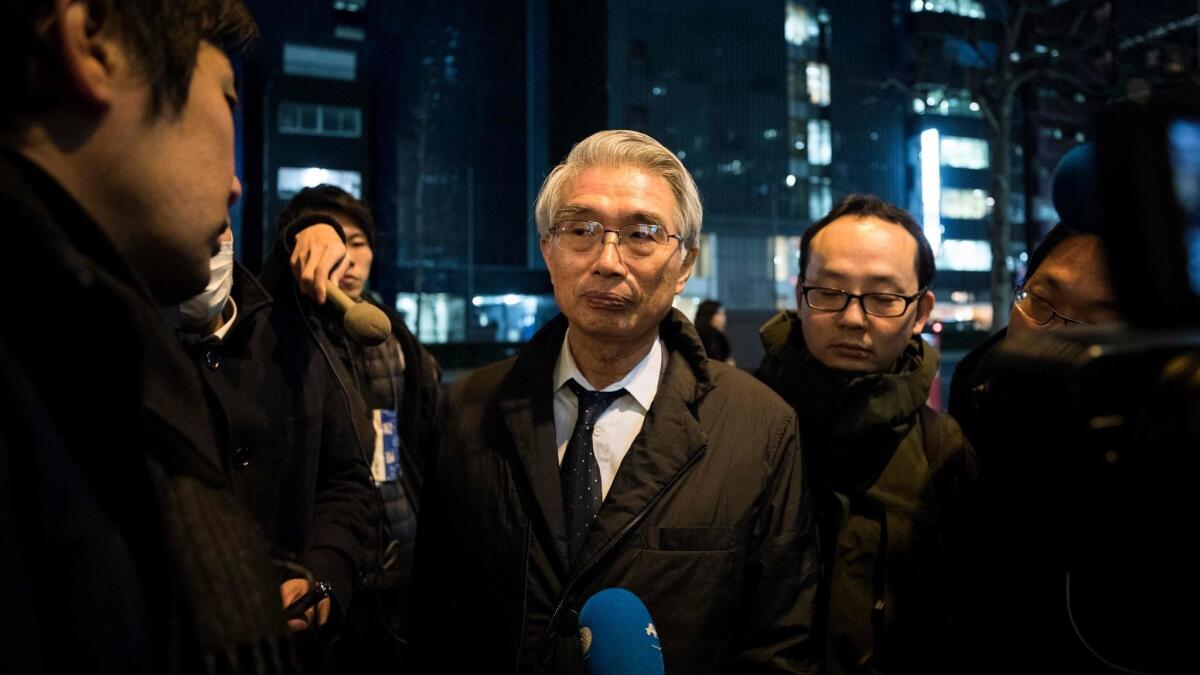Ex-Nissan chief Carlos Ghosnâs escape leaves 5 big questions

Carlos Ghosn has confirmed that he arrived in his home country of Lebanon, fleeing what he called âinjustice and political persecutionâ in Japan. The stunning escape was achieved while the former Nissan chairman was under strict bail conditions and daily surveillance by police and prosecutors as he awaited trial to defend himself against charges of financial misconduct. Here are the key questions:
1) How did he escape?
When the full details finally emerge, Ghosnâs escape may rank as one of the great vanishing acts of all time. How, exactly, could one of the most recognized faces in Japan, whose every move outside his apartment was tracked by the authorities, and whose three passports are still in his lawyersâ possession, slip through all of these obstacles and make it from central Tokyo to Beirut?
Speculation in diplomatic and legal circles has already produced several theories about how the escape was engineered, some wild, some sober. He evaded his police tail and used a small rural Japanese airport where his face was less well known; he left Japan by ferry and crossed to South Korea; he had a new French passport.
A detailed report in the French daily Le Monde, citing unidentified sources, said Ghosnâs wife, Carole, organized the escape with the help of her brothers and their contacts in Turkey. After leaving Tokyo, Ghosn took a private jet from a small airport in Japan to Turkey, and from there entered Lebanon with an ID card, landing in Beirut with Carole. He may have decided to flee because of new information Japanese authorities could have obtained from a Swiss bank and from offshore centers including Dubai, the newspaper reported.
One Lebanese media outlet reported that he left Japan hidden in some sort of container, possibly the case for a large musical instrument. The Lebanese newspaper Annahar reported that Ghosn entered the country with a French passport. The former industry heavyweight has Lebanese, French and Brazilian citizenship, though all his passports had been taken from him. Meanwhile, a report that Ghosn met with Lebanese President Michel Aoun was denied by an official at the presidency.
Most theories land on the idea that Ghosn could not have engineered such a daring exit without a false passport and a significant level of organizational assistance at all stages. A growing chorus of people Tuesday professed dumbfounded amazement at the escape but it seems unlikely, said one diplomat who has dealt with a similar issue in Japan, that the 65-year-old could have done this alone.
Junichiro Hironaka, who heads Ghosnâs legal team in Japan, said his flight to Lebanon âcame out of the blueâ and he was unaware of how his client managed to leave Japan. But he suggested a bigger force was at play in organizing his escape, saying âa very large organization must have acted to pull this off.â
Lebanonâs General Security Directorate said that Ghosn entered the country legally and that there was no reason to take legal proceedings against him, state news agency NNA reported. A spokesperson for Beirutâs Rafic Hariri International Airport declined to comment.
2) What is the reaction in Japan?
Official Japanese reaction has so far been muted to Ghosnâs flight, which came just a week after a visit to Beirut by Keisuke Suzuki, minister of state for foreign affairs who spent time with the Lebanese president and other officials. Japanese foreign ministry officials say that the possibility of Ghosn traveling to Lebanon was not discussed during the meeting.
Some in Japan, meanwhile, have questioned just how enraged the Japanese prosecutors will be that their highest profile suspect for many years is now very unlikely to stand trial. In theory they will be furious that Ghosn humiliated them, say legal experts. But privately they may feel they have dodged a potentially greater blow to their pride from a trial that would have also put their conduct under intense and protracted global scrutiny.
Japanese prosecutors, under immense pressure to maintain their 99% conviction record, tend to take on the cases they know they can win: In many instances, they are comfortable heading into court only when they already have a confession. They did not have one from Ghosn and, according to some legal experts, were anticipating a knife-edge trial at which Ghosnâs lawyers were explicitly planning to attack the way that the prosecutors built their case and the alleged political motivations behind it.
The Tokyo District Public Prosecutors Office and the Immigration Services Agency of Japan, which are closed ahead of the new year holiday, could not be reached for comment Tuesday.

3) What can Ghosn do now? Can he travel? Can he work?
In a brief statement on Tuesday, Ghosn appeared to make an immediate start on shaping his image beyond Japan, the indignity of his arrest and the trial he will now likely avoid.
He is not, according to this narrative, a fugitive from justice, but from an unjust system â language that seems calculated to secure him a quick rehabilitation in some circles. Could the once famous embodiment of âDavos Manâ make a surprise return to the World Economic Forum in (neutral) Switzerland next month?
Probably not. Friends of Ghosn say it is likely that he will base himself exclusively in Lebanon in coming months. But the travel restrictions he faces may not hold him there indefinitely since Japan has an extradition treaty only with South Korea and the U.S.
Hassan Diab, Lebanonâs new prime minister-designate, is trying to assemble a Cabinet to deal with Lebanonâs worst financial and economic crisis in decades. Some in Beirut speculate that Ghosn, still lauded for his business savvy in Lebanon, might be called up.
His job prospects in the U.S., however, are already grim. In September, Ghosn agreed to pay $1 million to settle fraud charges with the U.S. Securities and Exchange Commission over allegations the former Nissan boss hid more than $140 million of his pay package. Ghosn neither admitted nor denied any of the charges made by the SEC, but the settlement bans him from senior positions in any U.S. company for a decade.
One thing is certain â more than a year after his initial arrest, Ghosn remains defiant.
âIf you want to escape and run away for the rest of your life, you donât say where you are,â says one person who knows him well. âI donât think this is over.â
4) Where does this leave the trial?
Ghosnâs escape is likely to upset the entire judicial proceedings surrounding the four charges the car industry executive faces, all of which he denies. Two of those allegations relate to understating his pay by more than $80 million in Nissanâs financial statements.
The trial for these two charges would also involve Nissan, which is accused of falsifying its former bossâ pay, and Greg Kelly, who is charged with conspiring with Ghosn to understate his pay. Kelly, who denies the charges, remains in Tokyo awaiting trial. People close to Nissan, which co-operated with Tokyo prosecutors in building their case against Ghosn, were baffled by his flight to Lebanon, questioning how the trial can proceed without the key defendant.
Ghosn also faces a separate trial for breach of trust charges. If he does not appear on the first day of trial, which was expected to be as early as April 2020, court proceedings are likely to be suspended.
Prosecutors had argued he was a flight risk during the most recent round of bail negotiations in April. If the court determines that he breached his bail conditions, it would also confiscate $14 million in bail posted by Ghosn.

5) What does Ghosn mean by âinjusticeâ in Japan? How bad is this for the prosecutors?
Ghosnâs arrest in November 2018 has shone a spotlight on Japanâs justice system and the extreme pressure applied to extract confessions from suspects. His lawyers had earlier demanded the dismissal of charges against Ghosn, arguing that Japanese prosecutors, government officials and executives at Nissan âunlawfully colludedâ to bring him down.
While denouncing Ghosnâs escape as âunforgivable,â Hironaka, his lawyer, expressed some understanding for why his client felt that he would not be able to receive a fair trial in Japan.
Still, analysts say Ghosn is expected to face hard questions on his decision to ignore Japanâs judicial system and flee to a country where it does not have an extradition treaty. âAt this point, Ghosn has turned from a defendant to fugitive,â said Koji Endo, head of equity research at SBI Securities. âIf the trial in Japan is not going to be carried out, he has willingly abandoned a chance to fight for his legitimacy.â
Bloomberg contributed to this report.
The Financial Times Ltd. 2019. All rights reserved. FT and Financial Times are trademarks of the Financial Times Ltd. Not to be redistributed, copied or modified in any way.
More to Read
Inside the business of entertainment
The Wide Shot brings you news, analysis and insights on everything from streaming wars to production â and what it all means for the future.
You may occasionally receive promotional content from the Los Angeles Times.










